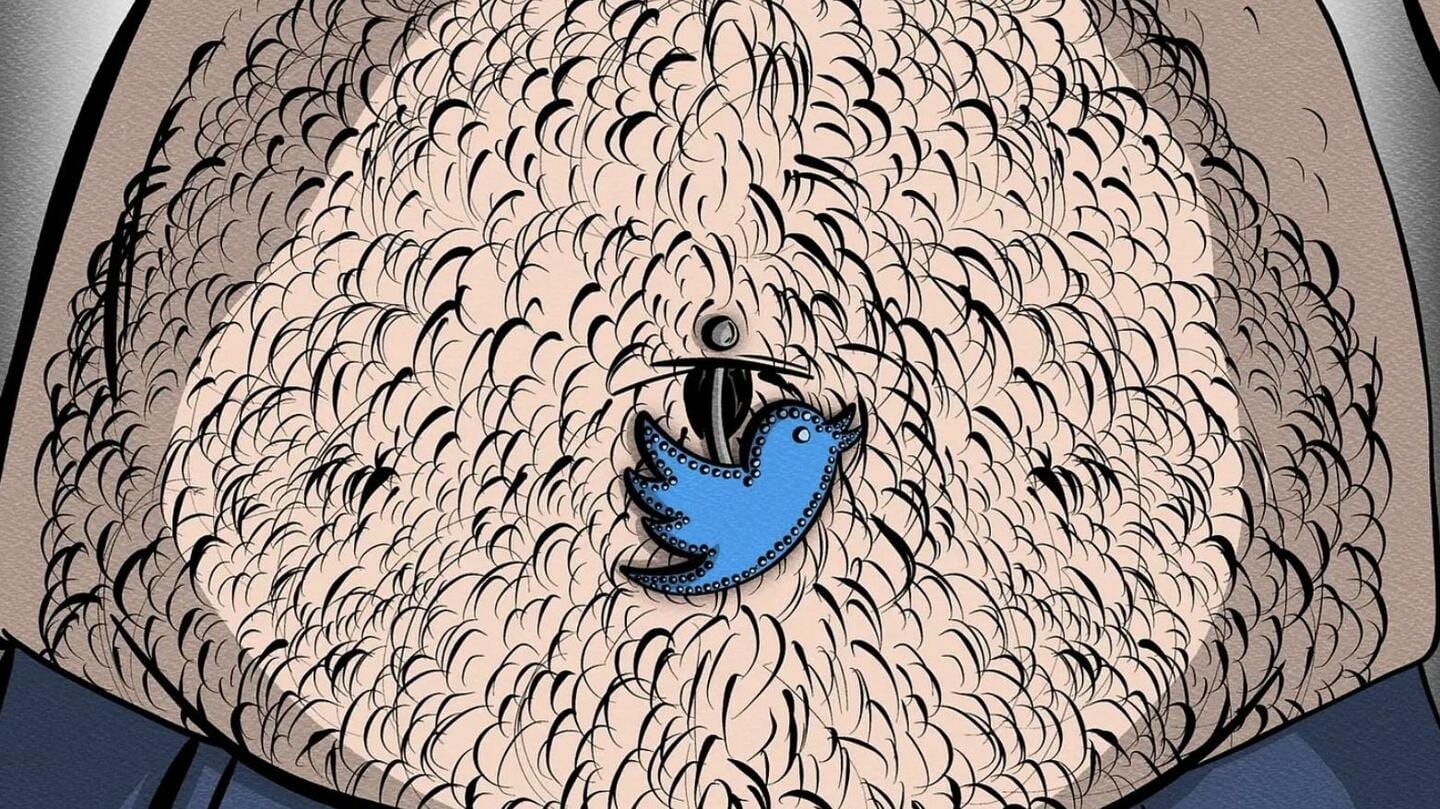
New Twitter Files reveal how US government agencies controlled Twitter
What's the story
The latest installment of Twitter Files is out, and as expected, it contains serious accusations against the US government. Titled "Twitter and the FBI Belly Button," it lays out the relationship between Twitter and government agencies.
It was revealed in the files that a US government agency demanded the suspension of 250,000 accounts.
Twitter's CEO Elon Musk showed his approval by retweeting the revelation.
Context
Why does this story matter?
Twitter Files have given us insight into how Twitter functioned. If the documents are to be believed, the platform was under the thumb of government agencies and worked to fulfill their requests.
Musk has made them available to select journalists to show that his Twitter is different. Amid the raging concerns about the platform's current state, this gives Musk ammunition to handle his critics.
GEC
Global Engagement Center (GEC) tried to moderate content on Twitter
The latest iteration of Twitter Files reported by Matt Taibbi is centered around the US State Department's Global Engagement Center (GEC). Taibbi described GEC as a "fledgling analytic/intelligence arm" that often tried to moderate content on the microblogging platform.
GEC was among the agencies that went public with the list of suspected Russian/Chinese accounts without consulting Twitter.
Russian proxies
Twitter tried to reach an agreement with GEC
In 2020, Taibbi wrote, GEC flagged accounts as Russian personas and proxies based on criteria such as "describing the coronavirus as an engineered bioweapon," blaming "research conducted at the Wuhan institute," and "attributing the appearance of the virus to the CIA."
To Twitter's dislike, GEC's findings led to news stories. This led to the platform trying to reach an amicable agreement with GEC.
Chinese accounts
GEC listed around 250,000 accounts as Chinese-linked
Per Taibbi, Twitter's then-head of safety and trust Yoel Roth tried to push back against GEC's analysis based on the Department of Homeland Security (DHS) data that there were nearly 250,000 Chinese-linked accounts that were peddling propaganda and misinformation about COVID.
Roth saw this as GEC trying to "insert themselves" into the content moderation club that included Twitter, Facebook, DHS, FBI, and others.
Twitter Post
GEC wanted to ban nearly 250,000 accounts
11.The GEC report appeared based on DHS data circulated earlier that week, and included accounts that followed “two or more” Chinese diplomatic accounts. They reportedly ended up with a list “nearly 250,000” names long, and included Canadian officials and a CNN account: pic.twitter.com/GYi4YuPdyu
— Matt Taibbi (@mtaibbi) January 3, 2023
United opposition
Facebook, Google, Twitter opposed GEC's inclusion in industry call
Although GEC later agreed to keep Twitter in the loop before going public with their reports, "the delta" between when they shared material and when they went public remained problematic.
This even led to public disagreement between Twitter and the government.
When FBI informed GEC's desire to be included in the "industry call" between companies and government agencies, Facebook, Google, and Twitter opposed this.
Accepting requests
Twitter accepted requests to ban accounts from every government body
According to Taibbi, Twitter accepted requests from "every conceivable government body," including the Senate Select Committee on Intelligence (SSCI), which wanted to make sure that Twitter was following the FBI's direction.
The platform received requests to suspend accounts from everywhere, including the treasury, the NSA, almost every state, the FBI, DHS, and more.
There were also requests to ban individuals.
Adam Schiff
Rep. Adam Schiff requested Twitter to suspend an account
Taibbi laid out an example of Twitter receiving requests to suspend accounts. The office of Rep. Adam Schiff, Democrat and the chair of the House Permanent Select Committee on Intelligence, asked Twitter to ban journalist Paul Sperry.
Twitter, in an unlikely fashion, denied this request. However, Sperry was suspended later.
We don't know whether someone else requested that or not.
Twitter Post
Some officials did not want to ban individuals
27.They also received an astonishing variety of requests from officials asking for individuals they didn’t like to be banned. Here, the office for Democrat and House Intel Committee chief Adam Schiff asks Twitter to ban journalist Paul Sperry: pic.twitter.com/SXI1ekqi13
— Matt Taibbi (@mtaibbi) January 3, 2023